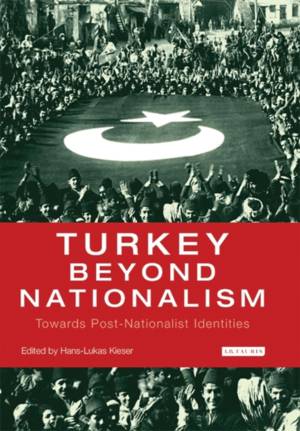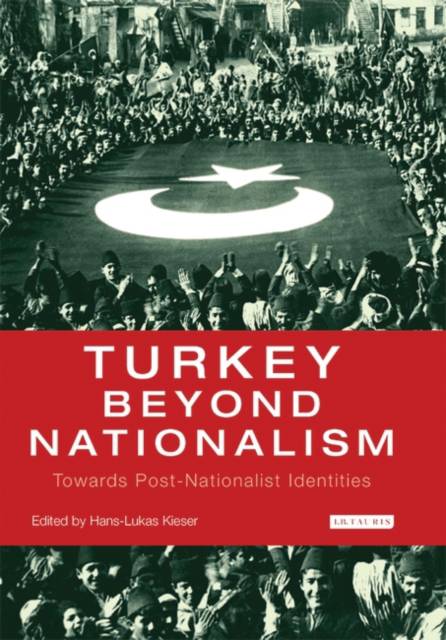
- Afhalen na 1 uur in een winkel met voorraad
- Gratis thuislevering in België vanaf € 30
- Ruim aanbod met 7 miljoen producten
- Afhalen na 1 uur in een winkel met voorraad
- Gratis thuislevering in België vanaf € 30
- Ruim aanbod met 7 miljoen producten
Zoeken
Turkey Beyond Nationalism Towards Post-Nationalist Identities
Towards Post-Nationalist Identities
€ 72,95
+ 145 punten
Omschrijving
Nationalism was a defining characteristic of Turkey in the twentieth century and was a central driving force in Kemal Ataturk's foundation of the Republic in 1923. How did the prominence of Kemalist ways of political thinking affect its people and policies? Is Turkey making progress towards post-nationalism or post-Kemalism in the twenty-first century? To what extent has Turkey's EU candidature been a vehicle of transformation since 1999 and what would EU membership mean for modern Turkey? This book explores the historical impact of Turkish nationalism, anti- liberalism and Westernization and examines the conditions that have contributed to the country's evolution from a quasi-religious Kemalism. Tracing the development of nationalism from its founding period before the Young Turk Revolution of 1908 to Kemalism and the present AKP government- and analysing key factors such as the position of minorities in the Turkification process and the influence of religious politics-this strong and significant contribution casts a new light on a vivid international debate.
Specificaties
Betrokkenen
- Uitgeverij:
Inhoud
- Aantal bladzijden:
- 272
- Taal:
- Engels
- Reeks:
Eigenschappen
- Productcode (EAN):
- 9781780763996
- Verschijningsdatum:
- 28/02/2013
- Uitvoering:
- Paperback
- Formaat:
- Trade paperback (VS)
- Afmetingen:
- 155 mm x 231 mm
- Gewicht:
- 408 g

Alleen bij Standaard Boekhandel
+ 145 punten op je klantenkaart van Standaard Boekhandel
Beoordelingen
We publiceren alleen reviews die voldoen aan de voorwaarden voor reviews. Bekijk onze voorwaarden voor reviews.










